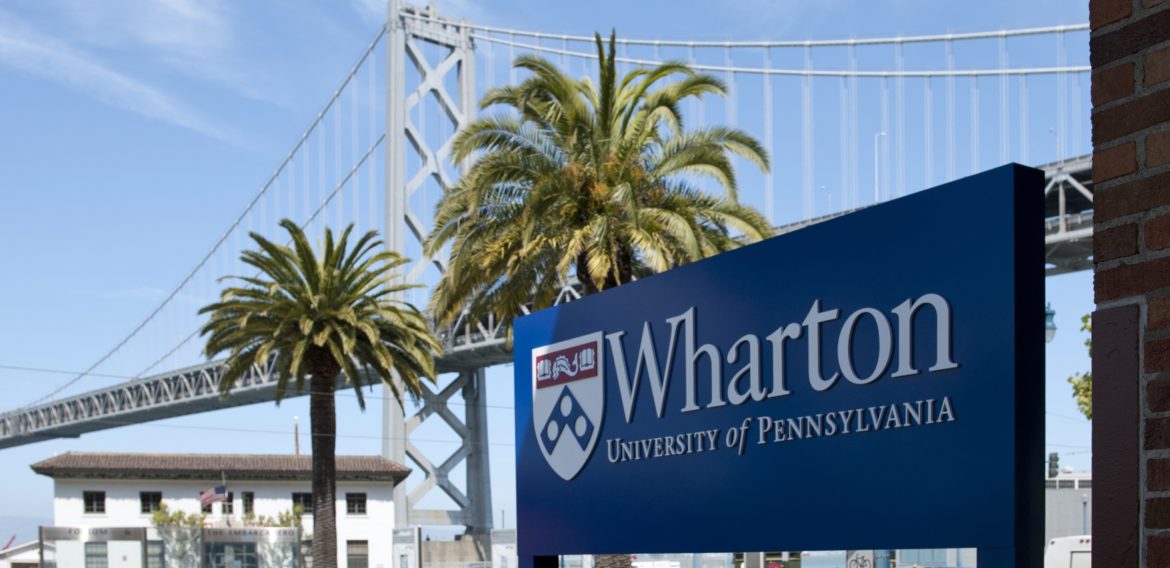Wharton’s EMBA Program
The Wharton MBA program for Executives – Philadelphia and San Francisco Barbara Craft and Diane Sharp, Directors of Admissions Each year, we get lots of admissions questions about a wide range of topics. We’ve compiled some of the most frequent ones below and highlighted a few differentiators about the Wharton MBA Program for Executives. Let’s start with some of the differentiators. As you conduct research into various schools to determine fit, you’ll find: One Wharton MBA: This is not a watered-down MBA. Students in the Wharton MBA Program for Executives earn the same degree as students in the full-time MBA Program. Both programs have the same admissions requirements, the same rigorous curriculum, the same number of contact hours, and the same faculty. The only difference is the executive format and the fact that executive students continue to work full-time while going to school. The EMBA program runs every other weekend for two years or six straight terms. Full-time students attend classes Monday – Thursdays and have the summers off. Two Campuses: Wharton’s EMBA program has campuses in Philadelphia and San Francisco. Students spend the first year on the “home campus” of their choice, but can take classes or spend entire terms on the other campus during their second year. GMAT Requirement: The GMAT is an admissions requirement at Wharton. It is a good indicator of how well people will do academically in the program. Since academics are the heart and soul of our program, we want to set people up to succeed. Preparing for the GMAT can be a great opportunity to get back into the swing of studying. Diversity: The quality of this program stems from our faculty, but also our students. When you come here, you will learn alongside intellectually curious, interesting and worldly people from a diversity of industries and parts of the world. Residential Requirement: Students are required to spend class nights at the same hotel. This is a requirement, even for local students. The residency aspect creates a close community of students, faculty, and staff. You don’t just come to campus and take a bunch of classes and graduate. You get to know each other well and form close bonds. This is a network that you are building for a lifetime. Having two campuses makes your network and opportunities even more vast. As for admissions advice, we’ve compiled tips from members of our Admissions Committee on some of the most frequently discussed topics: Be Authentic: Don’t try to fit into what you think we want, we want the real you. Do your homework to make sure we’re the right place for you. The Interview: The interview is a conversation about your career journey, goals, and how you made the decisions in life that helped get you to this point. We try to dig deeper to see how you fit into a team setting because that is critical for success in our program. And we look for how you will share your knowledge and experience in the classroom, as that creates a richer educational experience which is part of what makes Wharton’s EMBA program unique. We also look at how the program will fit into your life. Are you in a good place to take on this additional full-time equivalent educational experience? It will take you away every other weekend from home and family and create more work during the week. There is never a perfect time, but is this the right time? This is a once in a lifetime opportunity so we want students to get the most out of it as possible. As for timing, schedule the interview sooner rather than later. It’s an important part of your research process and can help you determine if this program is right for you. Also, schedule your interview on a day when you have time to sit in on a class and talk to current students. The Essays: The essays are a critical part of the application and should be authentic. They are a chance to tell your story, highlight what’s important to you, and explain how a Wharton MBA will help you achieve your goals. There are no right answers, but applicants should have someone else review their essays like a partner, colleague, or friend. Factors to Consider: When evaluating EMBA programs, look closely at things like the curriculum, the number of elective offerings, the number of classroom hours, the profiles of the alumni and current students, professional development opportunities beyond the curriculum, and extracurricular activities. Other helpful things to look at are career services, help with entrepreneurial ventures, student services, clubs, alumni network, and global learning opportunities. You also might look at size and location. Wharton has the largest faculty and alumni network in the world. And Penn is the only Ivy League school on the West Coast with its Wharton San Francisco campus. Advice for Poets: We don’t have any set expectations of what your background should be. Wharton values diversity and seeks people from all kinds of backgrounds. People tend to think they know what we want to hear in an interview or see in an application. But, really, we just want to know your background and if it’s not quantitative then it’s better to discuss that with us sooner than later. Our job is to help ensure you are prepared for this program. Sometimes we recommend that applicants take college-level math courses or get tutoring, whether it’s for the GMAT or for the actual quantitative coursework. If you have questions during the application process, please contact our offices at any time. We look forward to hearing from you. 


